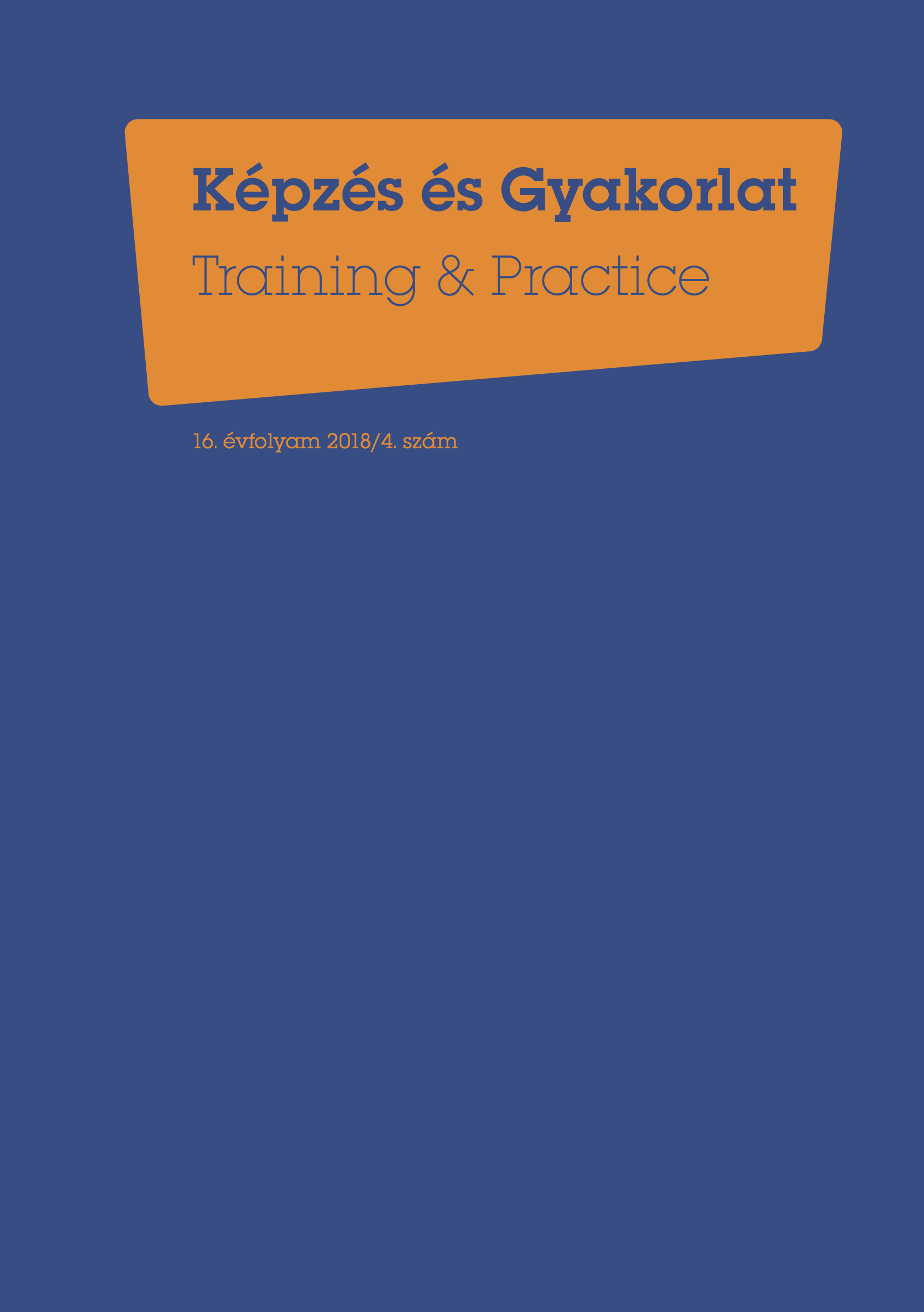Self-identity as the trial of pedagogical relationship
DOI:
https://doi.org/10.17165/TP.2018.4.3Abstract
The study investigates how the formations of the self-identity of the human entity, while trying to understand the world and the self, and the patterns of experiencing freedom, created by the potential of powers of performance that originates from the search for self-identity and also shapes the freedom and responsibilities of pedagogical relationships, are represented in the ethos of getting at truth and justice, present in every human being.
In case we succeed in finding good enough solutions that enable the free movement between the individual and institutional values and interest, we can get closer to grasp the habitualised concept of the pedagogical culture of the ethos.
The conclusion of the study suggests that good enough practice of education which is able to react sensitively to the changes of socialisation may support the self-development attempts of students to fill the gaps of their self-identity, re-create their self and find the possible means of understanding.
References
Ancsel, É. (1984). Éthosz és történelem. Budapest: Kossuth Könyvkiadó.
Ariès, P. (1987). Gyermek, család, halál. Budapest: Gondolat Könyvkiadó.
Bakacsi, Gy. (2004). Szervezeti magatartás és vezetés. Budapest: Aula Kiadó.
Chickering, A. W. – Reiser, L. (1993). Education and Identity. San Francisco: Jossey-Bass Publishers.
DeMause, L. (Ed.) (1974). The History of Childhood. New York: Psychohistory Press.
Dewey, J. (1976). A nevelés jellege és folyamata. Budapest: Tankönyvkiadó.
Donald, M. (2001). Az emberi gondolkodás eredete. Budapest: Osiris Kiadó.
Erdélyi, G. (2011). Szökött szerzetesek. Erőszak és fiatalok a késő középkorban. Budapest: Libri Kiadó.
Fromm, E. (1994). Birtokolni vagy létezni? Egy új társadalom alapvetése. Budapest: Akadémiai Kiadó.
Fromm, E. (1998). Az Önmagáért való ember. Az etika pszichológiai alapjainak vizsgálata. Budapest: Napvilág Kiadó.
Golnhofer, E. – Szabolcs, É. (2005). Gyermekkor: nézőpontok, narratívák. Budapest: Eötvös József Könyvkiadó.
Hirschman, A. O. (1995). Kivonulás tiltakozás hűség. Hogyan reagálnak vállalatok, szervezetek és államok hanyatlására az érintettek? Budapest: Osiris Kiadó.
Hofstede, G. (1980). Culture's Consequences. International Differences in Work-Related Values. Beverly Hills: Sage Publications.
Kohlberg, L. (1981). The Philosophy of Moral Development: Moral Stages and the Idea of Justice (Essays on Moral Development, Volume 1). San Francisco: Harper & Row.
Kraus, W. (1999). Kultúra és hatalom. A vágyak átváltozása. Budapest: Európa Kiadó.
Meirieu, P. (1991). Le choix d’éduquer. Éthique et pédagogie. Paris: ESF.
Miller, A. (2011). Kezdetben volt a nevelés. Budapest: PONT Kiadó.
Myhre, R. (1991). Autorität und Freiheit in der Erziehung. Stuttgart-Berlin-Köln: Verlag W. Kohlhammer.
Olson, M. (1997). A kollektív cselekvés logikája. Budapest: Osiris Kiadó.
Prohászka, L. (1937). Az oktatás elmélete. Kiadja az Orsz. Középiskolai Tanáregyesület, Budapest. (A magyar pedagógiai gondolkodás klasszikusai 6. Országos Pedagógiai Könyvtár és Múzeum, Budapest.)
Pukánszky, B. (2001). A gyermekkor története. Budapest: Műszaki Könyvkiadó.
Tóth, B. – Csányi, V. (2017). Hiedelmek. Az emberi gondolatok építőkövei. Budapest: Libri Kiadó.
Vajda, Zs. – Pukánszky, B. (szerk.) (1998). A gyermekkor története. Szöveggyűjtemény. Budapest: Eötvös József Könyvkiadó.
Downloads
Published
Issue
Section
License
Copyright (c) 2018 Perjés István

This work is licensed under a Creative Commons Attribution-NonCommercial-NoDerivatives 4.0 International License.












